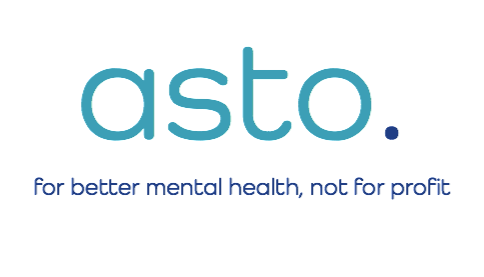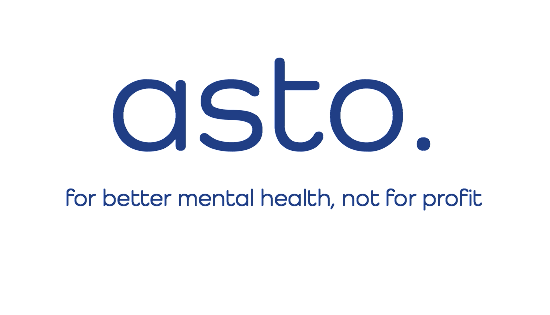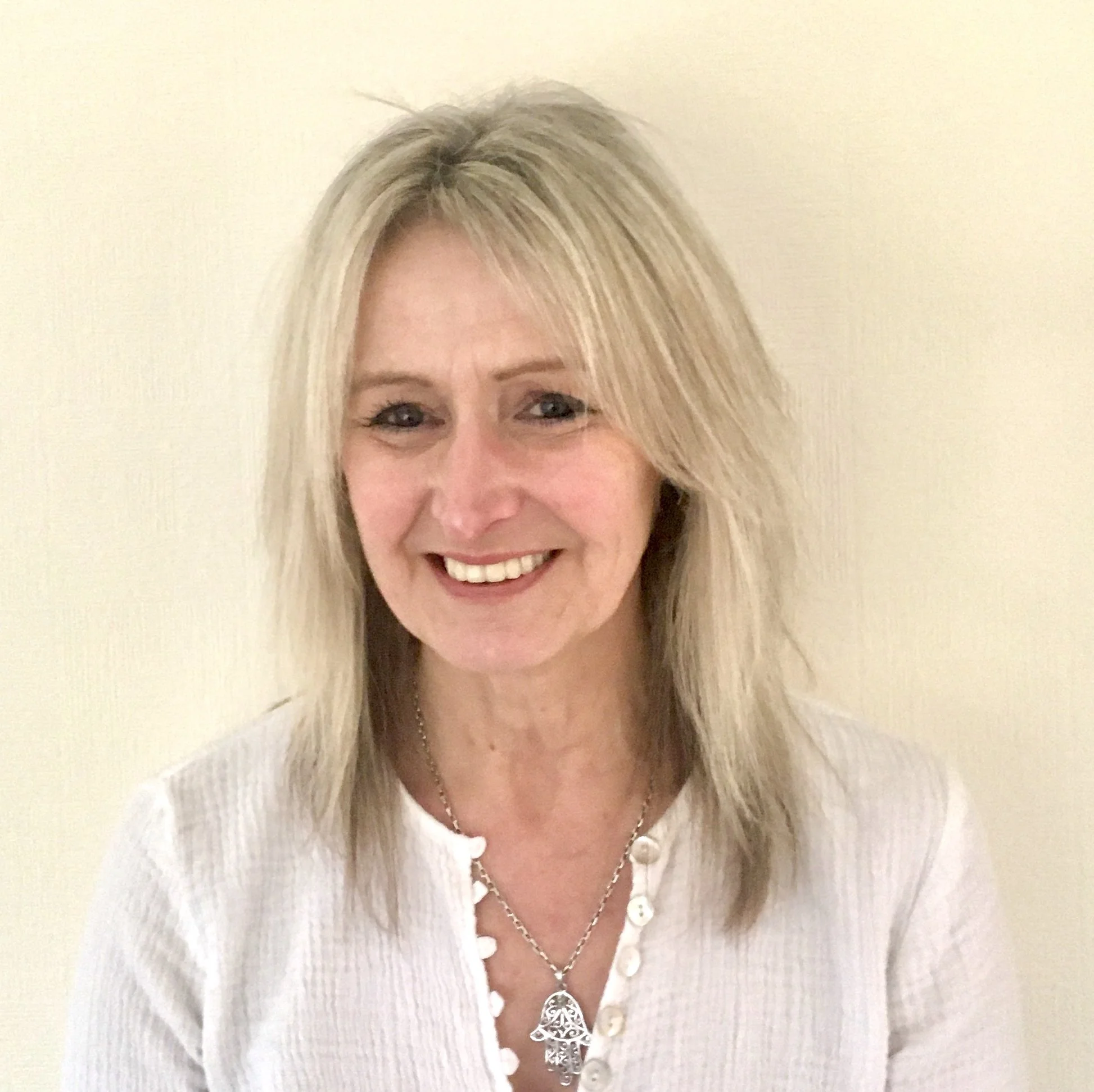
hello …
If you are suffering from the distressing, persistent, and debilitating effects of OCD - we’re here to help you begin to take back control of your life.
what is OCD?
Obsessive Compulsive Disorder (OCD) is a significant mental health problem which affects around 2% of the population. OCD symptoms tend to vary from person to person. These can include intrusive, unwanted, and difficult to control thoughts, images, or urges (obsessions) relating to harm/danger, contamination, sex, religion, need for symmetry and acts that are repeated physically or mentally (compulsions or rituals) such as cleaning/ washing, checking, counting, ordering, and many other repetitive behaviours.
we understand you
Asto’s founder, Steve Turnock, has previously suffered from severe OCD and is aware of how life-changing the right support can be. Asto is a UK charity that was established in 2020 for the sole purpose of providing treatment based on what works for individuals suffering from OCD.
We are delighted that we have engaged the services of Dr Papageorgiou and his team to deliver our Online OCD Treatment Programme. Dr Papageorgiou is one of the UK’s leading Consultant Clinical Psychologists, and has been working with his team for the last 18 years. Find out more about the team here.
how we can help?
Asto exists to help you get the treatment and support you need to regain control of your life. And the good news is...it can be done.
our treatment programme
Our OCD Treatment Programme is a practical course that offers you a good chance to fight against your OCD by accessing effective psychological treatment to learn to manage better or overcome this problem.
A key goal of this course is to help you understand what keeps your OCD going and then gradually become your own therapist by learning useful strategies and techniques based on behavioural, cognitive and other proven effective therapeutic methods.
The nature of this therapeutic course not only helps you to normalise and appreciate that you are not alone, but also to learn from other participants’ experiences of what works in the treatment of OCD.
A recently published large-scale research study showed that a significant proportion of people who attended this course had improved without any negative consequences of taking part.
course Information
Each course takes place weekly via Zoom, lasts for 12 weeks, with each session lasting for 2 hours, and with a maximum of 10 participants – each one of the sessions is facilitated by both an experienced consultant clinical psychologist and a former OCD sufferer.
Families, relatives or friends also have the opportunity to attend two of the sessions during the course in order to help them support the individual with OCD more effectively.
next steps
Taking the first steps towards therapy can be tough, but we understand, and we are here to help.
accessing the programme
If you are interested in participating in our OCD Treatment Programme you can refer yourself or ask either your GP or other relevant healthcare professional to refer you.
Following this, a brief telephone screening with our programme administrator will take place before a formal assessment via Zoom to establish if you may benefit from attending the course.
Not everyone is eligible for our course, as there are certain criteria that would make the programme not suitable for you. Please see these criteria here.
If you feel that you would benefit from attending our course, simply get in touch. In the first instance, please send us an email with a brief description of your OCD problems to sue@astoclinics.com, fill the form out here, or call us on 02843444110. Our office is open Tuesday to Friday, from 10am to 4pm.
how much does it cost?
We are a charity, and our aim is to help people access effective treatment for OCD. As such, we have funding available to pay for the treatment for a number of people in each group. However, we find that some people are happy to make a contribution to the cost, and others are able to pay for it themselves, or via an insurance company.
The initial clinical assessment costs £200, and each of the 12 group therapy sessions costs £150. The total cost of the programme is therefore £2,000.
All of these options will be discussed with you in detail by our programme administrator.
We will always find a solution that fits with your personal financial situation.
If you would like to understand more about how Asto is set up, please click here.
We’re on your side and we’re here to help
suitabilility criteria
Whilst we’d love to help everyone, we can’t. The programme isn’t for everyone.
We are keen to help, but first we need to make sure our treatment programme is right for you. So there are a couple of steps:
Step One – we need you to satisfy the following criteria:
· be aged 18+ years
· that you believe OCD is your main/significant problem
· you are not currently experiencing any suicidal intent or plans
· you are willing to attend 12 2-hour weekly sessions alone via Zoom
· you are not currently attending any addiction or eating disorders services
Step two – if you meet the criteria, please give us a call on 02843444110. This provides you with an opportunity to chat things through, and ask questions, and it also helps us to make sure we can offer what you need the most.
how is asto set up?
The structure of asto isn’t unusual, but the funding of treatments is a very new concept
in a picture
how does it work?
Asto Clinics Charity Ltd receives donations like any other charity, and has a Board of Trustees. It is a fully registered UK charity with number 1190240.
Asto Clinics Charity Ltd is a Company limited by guarantee, and has no shareholders.
In common with many other charities, it has a trading subsidiary called Asto Clinics Ltd. It is this company that runs the OCD Group Therapy Programme, and engages the Programme team.
Asto Clinics Ltd receives it’s income from patients who either pay for themselves, or have private health insurance, together with financial support from the charity.
Any profits that Asto Clinics Ltd makes are 100% gift aided back up to the charity, and they are then in turn used to fund further treatments for patients.
In summary, all donations from supporters, and payments received from patients are used to pay for the cost of running the OCD programme, and any surplus is used to help those patients that need financial support for treatment.
If you have any questions, please feel free to e-mail Steve on steve@astoclinics.com.
our team
Here’s who is going to make it all happen …
Dr Costas Papageorgiou - Consultant Clinical Psychologist, and Associate Professor of Clinical Psychology
Dr Papageorgiou is a highly qualified clinical psychologist with more than 25 years of clinical and research experience working in the areas of OCD, anxiety, and depression across several settings including the National Health Service, private mental health hospitals, and numerous national and international Universities (for further details on Dr Papageorgiou, please visit www.costaspapageorgiou.com).
Dr Papageorgiou has dedicated his professional career helping individuals with OCD, anxiety and depression to overcome these problems and improve their quality of life through brief, proven, and pragmatic psychological treatments. In 2007, with the support of Karen Carlile, Sue Thorgaard and other colleagues, Dr Papageorgiou established a longstanding outpatient 12-week OCD Treatment Programme at the Priory Hospital Altrincham, where hundreds of individuals with OCD participated and gained significant benefit. Dr Papageorgiou is delighted to be part of Asto Clinics Charity, which will enable him the opportunity to improve access of effective therapies for OCD to even more people with this problem.
Sue Thorgaard - Programme Coordinator
Sue started working as a medical secretary at The Priory Hospital Altrincham in 2004, where she was responsible for coordinating the OCD Treatment Programme since its inception in 2006 as administrator.
One of her key roles was to act as the first point of contact for patients, carers/families: listening and responding to any questions, and helping to allay any concerns. The role also involved motivating and preparing patients to engage with the assessment stage of the programme.
In addition, she has assisted in collecting and preparing relevant clinical data for quality and benchmarking analyses, some of which has been published in scientific peer-reviewed journals.
Externally she liaised with medical professionals who were gathering information about the service.
Sue’s interests include interior design, music and travel.
Karen Carlile - Treatment co-facilitator
Karen has a combined BA in History and Sociology, and it was after this time that she realised that she had severe OCD. In 2006, she had treatment at the Priory in Altrincham with Costas.
In 2007 after her successful recovery, she teamed up with Costas to become a facilitator for the OCD Group Programme that Costas was running at The Priory.
Karen is an essential part of the Group Programme, drawing on her own personal experience, and that of 15 years facilitating the Programme.
Karen enjoys walking, classical music, reading, and her two cats.
testimonials
Two experiences of our OCD Group Programme - in their own words
“I had seen multiple therapists spanning over a decade however I still had this reoccurring crippling anxiety that was getting worse and significantly restricting me from living my life – I was finally diagnosed with having OCD and I sought out the best treatment for this that I could find.
I found Costas Papageorgiou and read that he specialised in the treatment of OCD, and he had a track record for helping people who had previously had therapy that had been unsuccessful – This was what I needed however I was sceptical as I felt I was going to be starting over where I had been before.
I remember the moment I received the call from Sue, Costas’ secretary, to get me booked on the course – She gave me the info of the course and how it would work and I was immediately disappointed when she told me it was a group course! I really didn’t want to have to do therapy in a group however, as it turns out, it was the best thing that has ever happened to me!
Following an initial assessment 1-1 session with Costas, there were 12 sessions and each session was 2 hours long and was conducted on Zoom from the comfort of your own home. I was nervous and excited at the same time and after the first session, Costas asked us to make some notes on our reflections from the first session – I was shocked to have the realisation that this was the first time I had ever spoken with other people that were suffering in the same way I was
It was then I realised I was in the right place!
What would I say to someone contemplating this course?
If you’ve been diagnosed with OCD, I would urge you to try this course. I immediately felt I was in a safe place and gained a sense of support from the group as well as Costas and Karen, that I hadn’t expected to feel. I can honestly say it is the best move I have ever made in my life.
Since the course, I have regained my life fully and I am doing all the things I wanted to that I was previously completely avoiding. My family have seen this, and the benefit has therefore been felt by them too. I recently asked my wife what she felt about me having done this course and her response was that it has changed our life forever – We were able to get married, plan having children and go on holidays – All things that were either on hold or significantly impacted by my OCD.
My advice for anyone taking this course is to make the most if it by making plenty of notes and using the time after each session to write down your reflections. Putting pen to paper really helped me remember what I had learnt and gave me a little book of notes for me to look back on if I ever needed a reminder.
Good times are ahead 😊”
Joe
"At the age of 65, I had OCD almost all my life since about the age of 14. I’d always managed to live with it other than on 3 occasions over that period when it became unmanageable and caused me to stop functioning completely. The last of these was in 2020 just before the start of lockdown (although I have to say I don’t think this flare up was anything to do with COVID).
With the two previous major episodes, I had stubbornly refused to get any professional help and it was only with a prolonged period of mental anguish and depression that I managed to find my way through it myself.
On this last occasion, this did not work and I spiralled downhill faster and faster until I could hardly get of the bedroom in a morning and was consumed by OCD totally and very depressed. For the sake of my wife and myself, I knew I had to seek some professional help and got a referral from my GP to privately see a psychiatrist at the Priory. He confirmed not only that I had severe OCD but also that I was very clinically depressed.
After about 2 months of seeing him and being on medication, he felt it was time I saw an OCD specialist and highly recommended one who he rated as the best in the country and who ran a regular 12 week program. This was the first time I met Dr Costas Papageorgiou, a Clinical Psychologist, who after an initial consultation said my OCD, on a scale of 1 being mild to 12 being very severe, was a 12.
He explained that his program was a 12 week group therapy session using a modified CBT strategy which had always previously been held face to face but due to COVID was now online. Initially I felt I needed intense one to one treatment and was unsure of the idea of sharing my obsessions and compulsions with other people.
However, very quickly on the first session, I felt very comfortable with the others on the course who were suffering in the same way I was. I was sold on the idea of this group therapy. I wasn’t alone.
As the sessions progressed, it became clear the strategy wasn’t to look at why you had OCD and get at the root cause. It was obvious that from the 12 of us we all had similar compulsions but caused from different obsessions. Instead the plan was to give you the tools to stop the OCD by getting control of your compulsive thoughts.
The whole idea was based on an amazing strategy of how you stopped yourself crossing an imaginary line when you got an OCD thought (which everyone does but they don’t descend into the pit of OCD) and if you did cross it how then best to deal with it. The basic strategy in a nutshell was to leave it alone. Sounds simple, but anyone with OCD will know just how hard this is to do and how much mental anguish and pain there is. Its one I had discovered myself on the previous major flare ups without really knowing what or why I was doing it and why it worked, hence the subsequent relapses. This time however the program got me to understand how and why this worked and gave me several new tools to deal with it.
This worked, not only for me, but also for other people in my group. I did continue with some 1 to 1 sessions with Costas after the 12 weeks just to reinforce the concepts we’d learned and to make sure I was applying them in the correct way.
Costas is undoubtedly an amazing therapist and his course and his team have probably saved my marriage if not my life.
I am still not sure if I could ever say I am totally OCD free but I am as close to it as I have ever been over 50 years. The things I learned from both Costas and the other group members have helped me to lead a normal life again. I am also no longer clinically depressed.
In short, this group therapy program was an amazing success for me run by a brilliant, understanding and lovely man and his team and I would recommend this program to anyone with OCD.”
Steve





